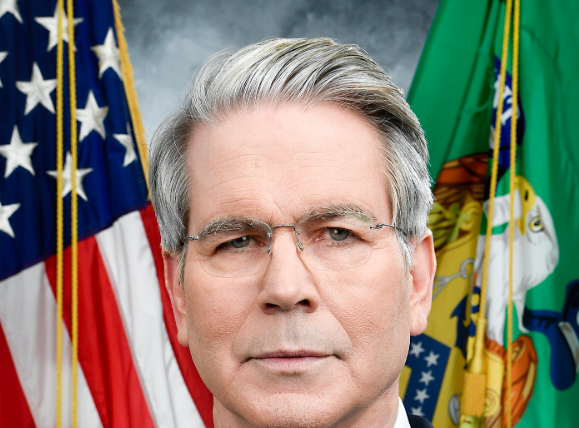
On August 27, 2025, U.S. Treasury Secretary Scott Bessent delivered a series of candid remarks on the United States’ trade relationship with India, highlighting tensions over stalled negotiations, Russian oil imports, and the imposition of sweeping tariffs. Speaking in an interview with Fox Business, Bessent outlined both frustrations and optimism in the evolving economic partnership between the world’s largest economy and the world’s largest democracy. His comments come on the very day that 50 percent tariffs on Indian goods officially took effect, including a 25 percent penalty tied specifically to India’s continued purchase of Russian oil.
Bessent began by acknowledging the importance of the U.S.-India relationship, calling it “very complicated” but underscoring the strong personal rapport between President Donald Trump and Prime Minister Narendra Modi. He expressed confidence that the two nations would eventually find common ground, arguing that both sides have too much at stake to allow trade tensions to spiral. “India is the world’s largest democracy and the United States is the world’s largest economy,” he said, adding that these fundamental facts make eventual cooperation inevitable.
Despite this optimism, Bessent voiced sharp frustration over the lack of progress in trade negotiations. Talks had begun shortly after April 2, 2025, which Trump had dubbed “Liberation Day” when he announced sweeping global tariffs. Bessent said he expected a deal to be reached with India by May or June, making the country one of the first to strike an agreement with Washington. Instead, he complained that New Delhi’s negotiating style had been “performative,” accusing Indian officials of “tapping us along” without making meaningful concessions. The absence of a trade pact, in his view, represented a major missed opportunity for both nations.
The Treasury Secretary also zeroed in on one of the most contentious issues in U.S.-India trade relations: New Delhi’s continued imports of Russian crude oil. Bessent accused India of “profiteering” by purchasing discounted Russian oil, refining it, and reselling petroleum products on the global market at a significant profit. He noted that this practice has not only bolstered India’s energy revenues but also undermined U.S.-led efforts to economically isolate Russia following its war in Ukraine. Bessent drew a comparison with China, which he claimed had only marginally increased Russian oil imports, suggesting that India’s strategy was far more aggressive and problematic for Washington.
Highlighting the broader trade imbalance, Bessent argued that the United States holds a structural advantage in negotiations with India. As a country that runs a large trade deficit, the U.S. has greater leverage over India, which enjoys a surplus in bilateral trade. He also pointed to India’s high tariffs as evidence that Washington is justified in taking a harder stance. From Bessent’s perspective, the new 50 percent tariffs were not only a retaliatory measure but also a necessary step to bring balance and discipline to the trading relationship.
In his remarks, Bessent also urged European allies to take a firmer line against India. He noted that Europe continues to import refined petroleum products from India that originate from Russian crude, a practice he said weakens U.S. efforts to pressure Moscow and end the war in Ukraine. “Europe’s lack of action undermines what we are trying to achieve,” Bessent stated, calling for coordinated transatlantic measures to compel India to reconsider its Russian energy ties.
When asked about the possibility of India pushing for greater use of the rupee in trade with BRICS partners, Bessent dismissed any concern that the Indian currency could rival the U.S. dollar. He pointed out that the rupee is trading near all-time lows against the dollar and lacks credibility as a reserve currency. “The dollar remains dominant, and the rupee poses no serious threat,” he said, brushing aside speculation of a currency realignment within emerging markets.
The imposition of 50 percent tariffs, including the 25 percent penalty linked to Russian oil, marks one of the toughest trade actions ever taken by the U.S. against India. For Washington, the move is part of a broader strategy to reshape global trade flows, reduce dependency on Russian energy, and assert leverage over emerging economies navigating between Western and non-Western blocs. For New Delhi, however, the tariffs present a serious challenge, given its export reliance on the U.S. market and its continued balancing act between strategic autonomy and global pressures.
As trade talks remain stalled and tariffs begin to bite, the U.S.-India relationship finds itself at a crossroads. While Scott Bessent remains publicly optimistic about eventual reconciliation, his sharp criticisms underline just how wide the gap remains. Whether Trump and Modi’s personal chemistry can translate into a breakthrough deal is now one of the most closely watched questions in global trade and geopolitics.




